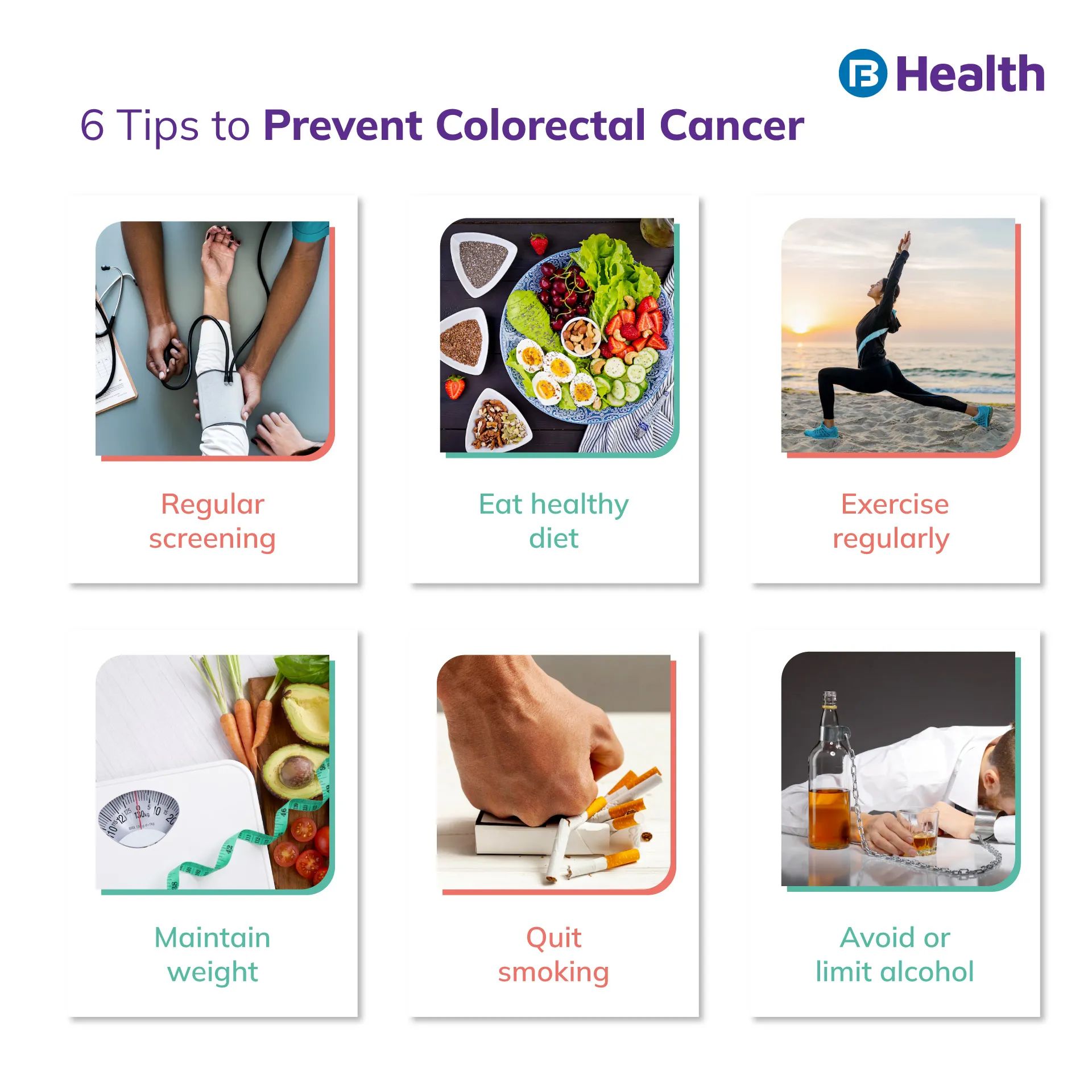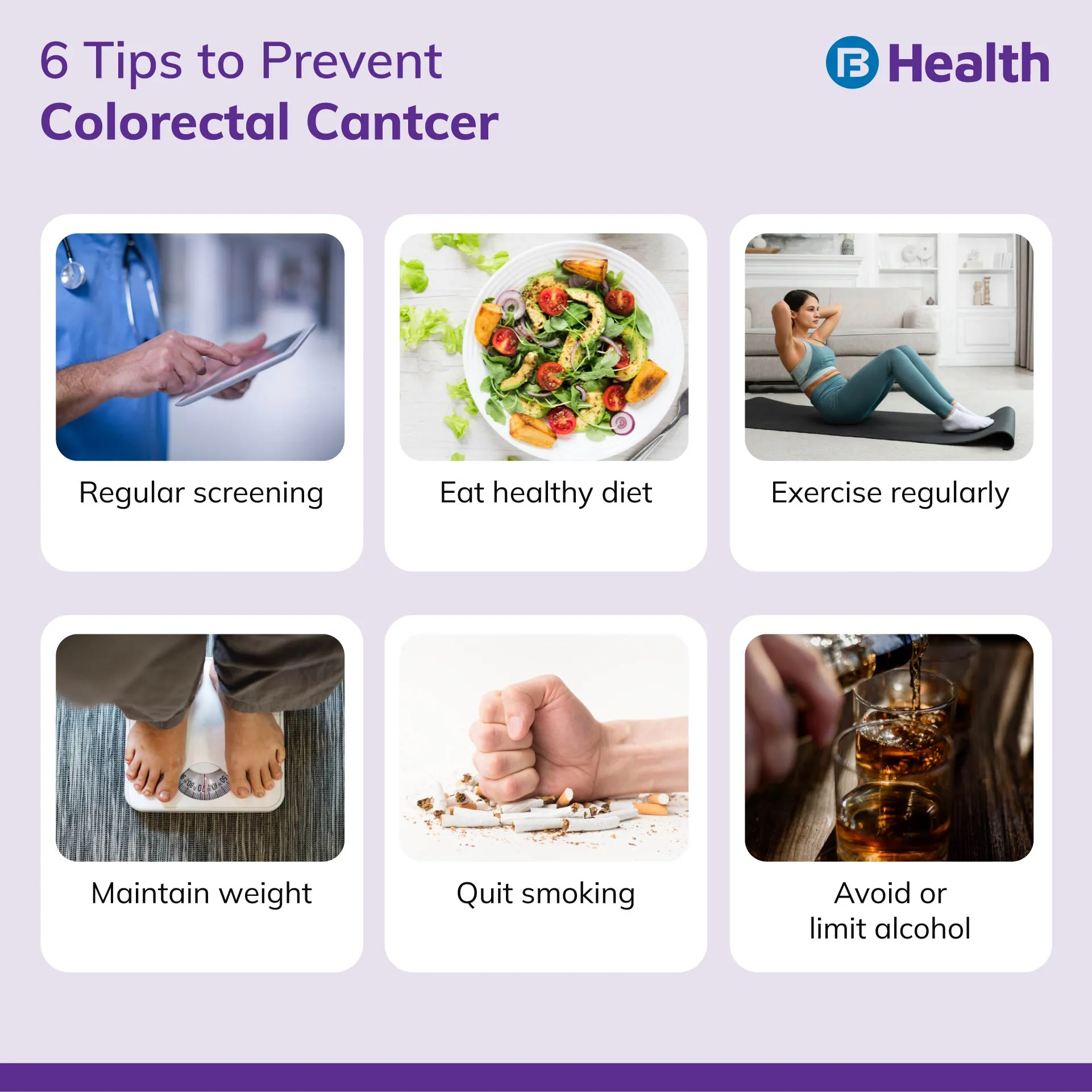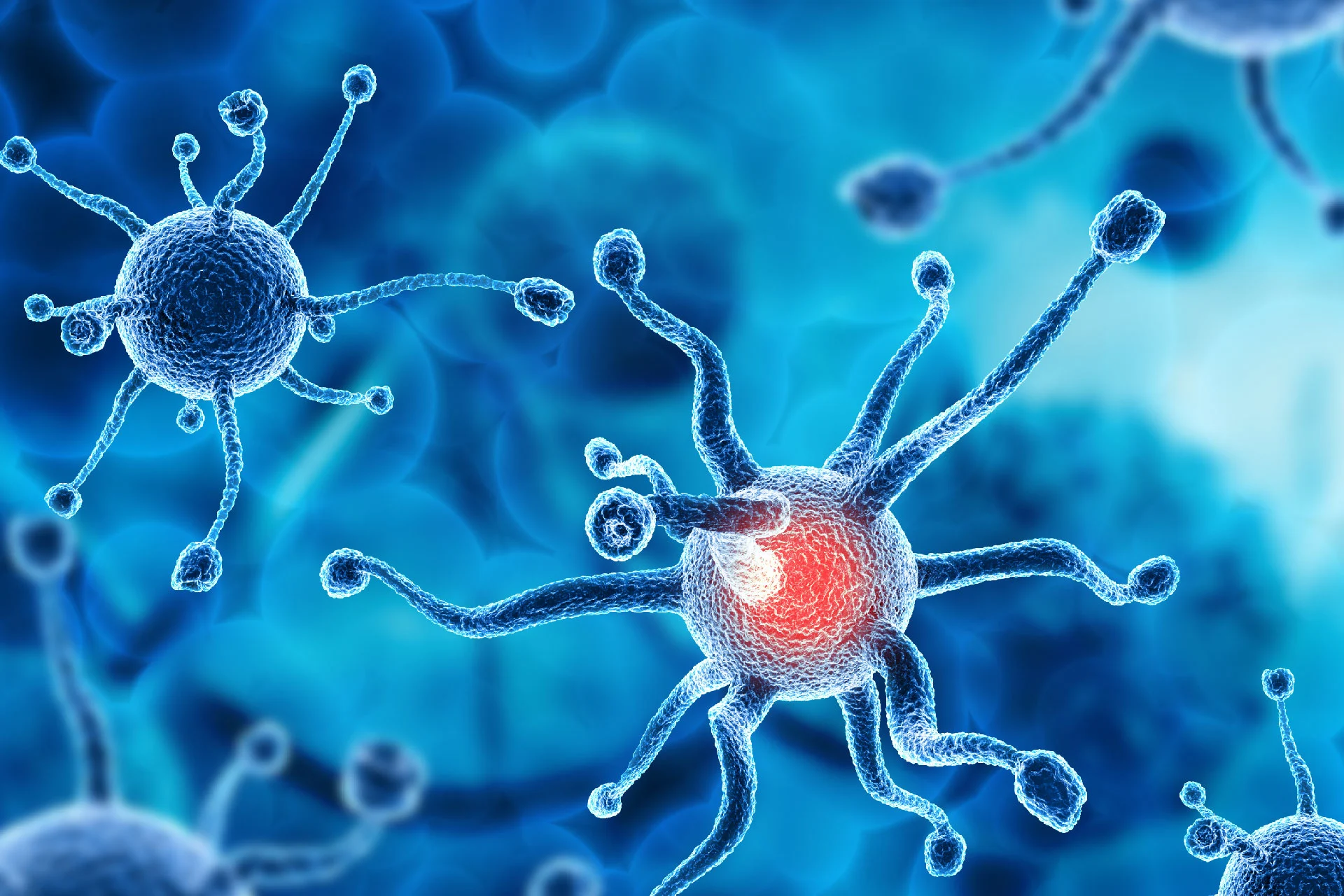Cancer | 5 min read
What is Colorectal Cancer: Symptoms, Causes and Treatment
Medically reviewed by
Table of Content
Key Takeaways
- Colorectal cancer is also known as colon cancer or rectal cancer
- Feeling full and bloating are colorectal cancer symptoms
- Colorectal cancer risk factors include smoking, age, gender
Colorectal cancer begins in the colon or rectum. They may also be known as colon cancer or rectal cancer, depending on where it begins to appear [1]. This cancer occurs when the healthy cells in your colon or rectum start spreading abnormally which leads to the formation of a tumor. This tumor can be benign or cancerous, and can grow, travel, and affect other parts of your body. Many genetic and environmental causes are responsible for abnormal changes in healthy cells which lead to colorectal cancer.
In India, colon cancer and rectal cancer among men are ranked 8th and 9th respectively. For women, colon cancer stands at 9th while rectal cancer does not make it to the top 10 cancers’ list [2]. The annual occurrence rate for colon cancer is 4.4 and rectal cancer is 4.1 per 1,00,000 men. For women, annual occurrence rate of colon cancer is 3.9 per 1,00,000 and cases of rectal cancer are negligible. Read on to know more about colorectal cancer symptoms and treatments.
Additional Read: Types of Childhood Cancer
Colorectal cancer symptoms
People who get colorectal cancer often do not experience any symptoms in the early stages. But one may have the following colorectal cancer symptoms depending on the size and location of cancer:
- Anemia
- Feeling full
- Blood in the stool
- Blood coming out of rectum
- Change in bowel habits
- Diarrhea or constipation
- Rapid weight loss
- Bloating and abdominal pain
- Tiredness, weakness, or fatigue
- Feeling that the bowel is not empty completely
Colorectal cancer causes
The exact cause of most colon and rectal cancers is not known. However, these cancers develop with mutations in the DNA of healthy cells. A cell’s DNA contains instructions for the cells that help in the proper functioning. When cancerous cells grow and divide, they destroy normal tissues and affect in the functioning of cells. It may also spread to other body parts, and even form a tumor. If you want to protect yourself from Colorectal cancer you can avail cancer insuranceColorectal cancer risk factors
Age
Although the cancer can occur at any age, it is more common in people older than 50. So, its risk increases as you grow older. Colon cancer is generally diagnosed at an average age of 68 for men and 72 for women. As for rectal cancer, the average age at the time of diagnosis is 63 for both genders.
Gender
The rate of diagnosis of colorectal cancer is slightly higher in men compared to women.
Race
Colorectal cancer is mostly diagnosed among African-Americans. In fact, the prevalence of colon cancer in African-Americans is higher compared to other races.
Family history
Having a blood relative with a history of colorectal cancer increases your risk of developing it too. A blood relative includes your parents, siblings, grandparents, aunts, and uncles. The risk increases if any of your family members gets diagnosed before the age of 60.
Medical history
Previous diagnosis of cancer in colon, ovary or uterus can increase your risk of developing colorectal cancer.
Diet
A diet low in fiber and high in fats and calories can increase the risk of colon and rectal cancer. Further, researchers state that consumption of red and processed meat also increases your risk.
Obesity
Obese or overweight people are at a higher risk of colorectal cancer compared to people who maintain a normal weight.
Diabetes
The risk of colon cancer is believed to be high in people who have diabetes such as type 2 diabetes. Resistance to insulin can also increase your risk.
Smoking and alcohol abuse
Your risk increases if you smoke tobacco, cigarettes or consume alcohol excessively.
Sedentary lifestyle
Those who are inactive, do not exercise, or sit a lot have an increased risk of colorectal cancer.
Radiation therapy
Radiation therapy targeted near the abdomen to treat other cancers increases your risk of colon cancer.
Inflammatory intestinal conditions
Crohn’s disease, ulcerative colitis, and other chronic inflammatory diseases related to the colon can increase the risk of colon cancer.
Stages of colorectal cancer
The stages for different types of cancer give an idea on how much it has spread. Here are the stages of colorectal cancer:
- Stage 0: This is the earliest stage when the cancer is present only in the colon or rectum’s inner layer. It is known as carcinoma in situ.
- Stage 1: In this stage, cancer has spread through the inner layer of your colon or rectum. But it has not crossed the wall of the rectum or colon.
- Stage 2: In this stage, cancer has spread into the wall of your colon or rectum, but is yet to reach the nearby lymph nodes.
- Stage 3: In this stage, cancer has spread to the lymph nodes, but has not reached other body parts.
- Stage 4: This is the most severe stage where the cancer has spread to the liver, lungs, and other body organs and cells.
Treatments can sometimes help destroy cancer but they may reoccur. This type of cancer is known as recurrent cancer.

Colorectal cancer treatment
Colorectal cancer treatment depends on various factors like the stage, size, and location of the tumor. It is also dependent on your overall health and whether it is a recurrent cancer.
Colorectal cancer treatment options include the following:
- Surgery
- Chemotherapy
- Radiation therapy
- Targeted therapy
- Immunotherapy
You may also get palliative care to improve your life, control symptoms and side effects.
Additional Read: Radiotherapy for CancerThe treatment for any type of cancer including colorectal cancer should take place at early stages. For this, you need to take preventive measures like getting screened for cancer and making lifestyle changes. If you experience swelling, bloating, or any other abnormal changes near your colon or rectum, consult a doctor right away. Book an online doctor consultation on Bajaj Finserv Health and consult with top oncologists near you.
References
- https://www.cancer.org/cancer/colon-rectal-cancer/about/what-is-colorectal-cancer.html
- https://main.icmr.nic.in/sites/default/files/guidelines/Colorectal%20Cancer_0.pdf
Disclaimer
Please note that this article is solely meant for informational purposes and Bajaj Finserv Health Limited (“BFHL”) does not shoulder any responsibility of the views/advice/information expressed/given by the writer/reviewer/originator. This article should not be considered as a substitute for any medical advice, diagnosis or treatment. Always consult with your trusted physician/qualified healthcare professional to evaluate your medical condition. The above article has been reviewed by a qualified doctor and BFHL is not responsible for any damages for any information or services provided by any third party.





